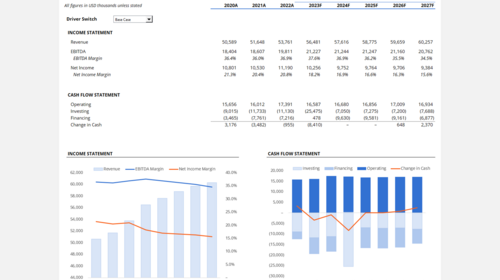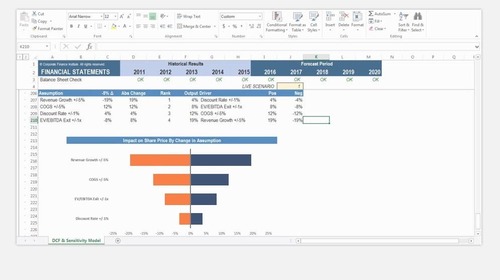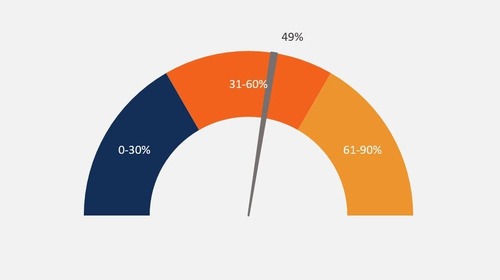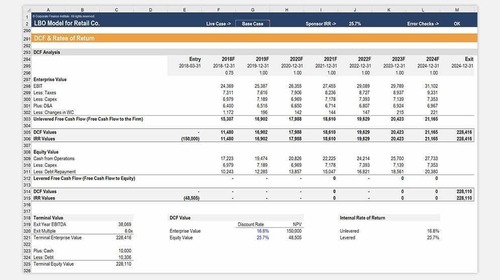- Rising Demand for Advanced FP&A Expertise
- The Evolving Role of FP&A into Strategic Advisor
- Navigating Modern Complexity
- Data-Driven Decision Making
- Digital Proficiency
- Enhanced Forecasting and Scenario Planning
- Cross-Functional Collaboration
- ESG Integration
- Forward-Looking Vision
- FP&A's New Era
- Cultivating Modern FP&A Skills
- CFI for Teams
FP&A at the Forefront (Part 1)
Part 1 of a two-part series exploring the evolving world of FP&A from key drivers reshaping FP&A's role and the advanced skills required to adapt successfully
Rising Demand for Advanced FP&A Expertise

With CFOs increasingly focused on long-term value creation, they rely on financial planning and analysis (FP&A) for strategic insights beyond traditional financial metrics. Modern FP&A teams must evolve to meet these needs, providing guidance that supports lasting value.
However, finance leaders face a challenge with talent shortages. A recent survey of CFOs reported that nearly half (49%) expressed a pressing need for FP&A expertise. This trend necessitates a broadening of FP&A skills, encompassing areas like digital transformation, risk management, ESG initiatives, and overall business strategy leadership.
To align FP&A capabilities with these evolving demands, targeted skill-building initiatives are essential to equip teams to support CFOs in their expanded role of driving financial leadership and strategic business guidance.
Key Highlights
- The role of FP&A has expanded beyond orthodox budgeting, forecasting, and performance tracking to supporting CFOs in driving long-term value creation.
- FP&A’s evolution aligns with the transformation of corporate finance, where agility, strategic decision-making, and mastery of technology are now essential.
- Targeted skill-building initiatives are crucial for preparing FP&A teams to tackle current and future challenges in the dynamic landscape of corporate finance.
The Evolving Role of FP&A into Strategic Advisor
The traditional role of FP&A is centered on budgeting and forecasting, performance tracking, and financial reporting, serving as critical tools for businesses to plan and maintain financial discipline. Building on these foundations, FP&A has ventured into a broader, more strategic function.
This shift to a strategic value creation focus reflects the changing landscape of corporate finance, where agility, strategic decision-making, and technological prowess have become indispensable.
Navigating Modern Complexity
While FP&A teams remain accountable for financial stewardship, recent value creation mandates have driven them—and finance teams broadly—beyond their traditional roles to more dynamic and advanced practices, both financial and non-financial.
Accelerated economic shifts and market volatility also drive this expanded mandate. FP&A teams are increasingly pivotal in guiding CFOs and other business leaders through complex, uncertain environments.
Data-Driven Decision Making
FP&A teams increasingly rely on their business’s financial and operational data to gain deeper insights and identify new opportunities. Their role now involves interpreting data to find cost-saving measures and ways to optimize business strategies, such as pricing adjustments and operational improvements. This data-driven approach enables more strategic, nuanced decision-making that contributes to value creation.
Digital Proficiency
Digital technology integration enhances FP&A’s capabilities through, for example, platforms that automate numerous routine finance and accounting tasks and provide sophisticated, real-time insights into financial KPIs. As a result, FP&A teams gain improved accuracy and efficiency in their daily, monthly, and quarterly processes and reporting.
Enhanced Forecasting and Scenario Planning
Adapting to rapidly changing market conditions, FP&A now involves an intensified focus on dynamic budgeting, forecasting, and scenario and sensitivity analysis. This approach equips business leaders to anticipate and effectively respond to varied and unpredictable market conditions.
Cross-Functional Collaboration
FP&A professionals are increasingly collaborating with various business units, weaving financial planning into the fabric of broader operational strategies to drive company performance. This collaboration ensures financial goals complement operational objectives.
FP&A teams work closely with operations, HR, and IT, exemplified by assessing the financial impact of IT investments or aiding HR in workforce planning, to ensure cohesive alignment between financial strategies and departmental needs.
ESG Integration
The trend of integrating environmental, social, and governance (ESG) factors into FP&A is gaining momentum, mirroring the increasing focus of society and investors on sustainable and responsible business practices.
FP&A teams are integrating ESG considerations into their forecasting and scenario planning, aligning financial goals with broader ethical and sustainability objectives while gaining the necessary understanding of business impact.
Forward-Looking Vision
Looking ahead, these developments pave the way for FP&A teams to play an integral role in strategic planning and shaping organizational objectives. The evolution in FP&A’s role not only enhances its strategic importance but also sets the stage for a deeper exploration of the new skills and capabilities essential in this transformed landscape.
FP&A’s New Era
Amid this backdrop of evolution, FP&A has emerged with new responsibilities, becoming deeply involved in strategic planning and shaping business plans.
As we look at FP&A today, it’s clear the function has become a valued partner to various business leaders within a company. To thrive in this expanded role, FP&A professionals need new and advanced skills, highlighting the importance of upskilling and reskilling.
The following skills are vital for finance leaders and professionals to develop the FP&A capabilities their CFOs need to influence strategy and create long-term value:
- Financial modeling for advanced forecasting and scenario planning, as well as analyzing revenue, costs, profitability, valuation, investments, and more.
- Proficiency in data analytics and data visualization
- Strategic business acumen
- Technological proficiency (including AI and machine learning)
- Cross-functional collaboration skills
- Communication and storytelling
- ESG analysis and reporting
- Risk management and mitigation
- Business Intelligence, i.e., analyzing market trends, growth drivers, and operational efficiency
Cultivating Modern FP&A Skills
The evolution of FP&A to a strategic, data-centric, and collaborative function calls for a new breed of finance professionals, equipped with a diverse set of skills ranging from advanced analytics to strong business acumen.
Recognizing these skills is only the beginning. The true challenge and opportunity for finance leaders lie in cultivating these capabilities within their teams. A crucial aspect is how organizations can effectively implement upskilling and reskilling initiatives, preparing their FP&A teams for current demands and future challenges.
The second article in this series delves into actionable steps to create a strong, adaptable, and strategically focused FP&A function, poised for the evolving landscape of corporate finance.
CFI for Teams
Transform your finance team into a strategic, insight-driven powerhouse that delivers a competitive edge to your business. CFI for Teams offers specialized training courses and certification programs in FP&A and beyond. No matter the needs of your organization, we can equip your team with the skills they need to reach their full potential.
Additional Resources
FP&A at the Forefront (Part 2): The Modern Mandate for FP&A
Selecting the Best Online Training Platform for Your Finance Team
Create a free account to unlock this Template
Access and download collection of free Templates to help power your productivity and performance.
Already have an account? Log in
Supercharge your skills with Premium Templates
Take your learning and productivity to the next level with our Premium Templates.
Upgrading to a paid membership gives you access to our extensive collection of plug-and-play Templates designed to power your performance—as well as CFI's full course catalog and accredited Certification Programs.
Already have a Self-Study or Full-Immersion membership? Log in
Access Exclusive Templates
Gain unlimited access to more than 250 productivity Templates, CFI's full course catalog and accredited Certification Programs, hundreds of resources, expert reviews and support, the chance to work with real-world finance and research tools, and more.
Already have a Full-Immersion membership? Log in





